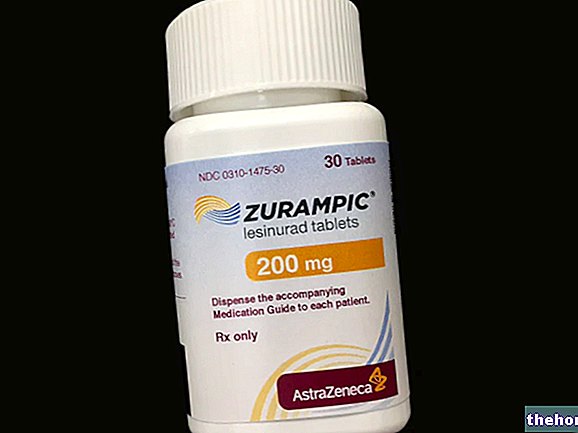Definition
Asthma is defined as a chronic pathological condition in which there is an inflammation and constriction of the bronchi, responsible for coughing, breathing difficulties, overproduction of mucus and a feeling of suffocation.
Causes
The underlying cause of asthma is not yet undisputed; certainly, a combination of elements can favor its onset. The genetic component heavily affects the onset of asthma; moreover, the probability of disease manifestation increases when the genetically predisposed patient comes into contact with allergens (eg pollen, food), respiratory infections, medicines (eg NSAIDs), physical exertion, excessive emotions, stress, smoking.
Symptoms
For some patients who suffer from it, asthma is easily controlled, while for others the severity of the condition is such that it interferes with normal daily activities. Symptoms, of varying intensity, can include: phlegm, chest tightness, difficulty breathing, dyspnoea, sleep disturbances due to shortness of breath, chest pain, wheezing, catarrhal or dry cough.
Diet and Nutrition
The information on Asthma - Asthma Treatment Drugs is not intended to replace the direct relationship between health professional and patient. Always consult your doctor and / or specialist before taking Asthma - Asthma Treatment Drugs.
Medicines
Although there is not yet a complete cure for asthma, some drugs can alleviate symptoms and control prodrome.
Long-term prevention and control are the key to preventing asthma attacks: before prescribing a drug, the patient undergoes all the medical tests useful for diagnosing the type of asthma and the severity of the condition. the asthmatic patient does not manifest the typical symptoms every day: the disease is defined as "chronic" because it is characterized by asymptomatic phases alternating with periods of exacerbations, even quite serious. Asthma can appear suddenly and the patient must be ready to intervene before the condition gets worse.
During the asymptomatic phases, it is important not to interrupt the therapy, even in full health: in this way sudden asthma attacks are prevented.
The following are the classes of drugs most used in asthma therapy, and some examples of pharmacological specialties; it is up to the doctor to choose the most suitable active ingredient and dosage for the patient, based on the severity of the disease, the state of health of the patient and his response to treatment:
Anticholinergic bronchodilators: by dilating the airways, they release the bronchial muscles allowing the patient to breathe better. Short and long-lasting bronchodilators are available: the former are referred to as "life-saving drugs" and are a valuable aid in clearing the respiratory tract in a short time, useful for acute asthma attacks. Long-term bronchodilators are used in asthma prophylaxis.
Bronchodilators do not intervene on inflammation of the respiratory tract, nor are they able to reduce the hyperactivity of the bronchi.
- Ipratropium bromide (eg Atem, Breva): the drug is available in formulations consisting of the active ingredient alone or in association with beta2-agonist drugs. By aerosol, repeat 2 inhalations (36 mcg) 4 times per day (do not exceed 12 inhalations per day). Alternatively, take a single-dose 500 mg vial (nebulized solution), 3-4 times a day. Ipratropium is indicated to alleviate the symptoms of asthma in the context of COPD and for the treatment of rhinorrhea.
- Isoetarin: the drug exerts a moderate relaxing activity at the level of the vascular and bronchial smooth muscles. Consult your doctor.
Methylxanthines: class of bronchodilators
- Difylline: generally, the drug is available in association with Guaifenesina (eg Broncovanil, Vicks Tosse Fluidific), a substance with antitussive-expectorant activity. The dosage and method of administration of the drug must be established by the doctor
- Theophylline (eg. Aminomal Elisir, Diffumal, Respicur): it is a xanthine drug used in therapy to reduce the broncho-constricting stimulus. Theophylline is indicated for the treatment of chronic bronchitis and COPD associated with asthma: the drug should be taken at a loading dose of 5 mg / kg. The drug is often recommended in combination with antitussives / expectorants; there are also pharmacological preparations already See your doctor.
Inhaled glucocorticoids: reduce inflammation of the respiratory tract. They are particularly useful for allowing the patient to breathe better and to relieve shortness of breath. It must be remembered that steroid drugs should not be taken in excessive quantities, nor are they recommended for long periods, as they can increase the risk of hypertension, diabetes, weakening of the bones and cataracts.
- Fluticasone (eg. Avamys, Alisade, Fluspiral, Nasofan): for patients previously treated with bronchodilators, it is recommended to start therapy with 88 mcg of drug, twice a day (aerosol). Do not exceed 440 mcg, twice a day.Instead, for asthmatics previously treated with inhaled corticosteroids, it is recommended to start treatment with fluticasone at a dosage of 88-220 mcg, twice a day; again, patients previously treated with oral steroids should start therapy with this drug with higher doses (aerosol: 880 mcg, twice daily. Do not exceed 880 mcg, twice daily.)
- Beclometasone (eg. Clenil): indicated for maintenance therapy in the context of asthma. It is recommended to take 40-80 mcg of active by aerosol (2 inhalations of 40 mcg, twice a day). Do not exceed 640 mcg per from.
- Flunisolide (eg Flunigar, Nisoran): this drug, widely used in therapy for the treatment of allergic rhinitis, is sometimes used to treat asthma. Consult your doctor.
- Ciclesonide (eg. Alvesco): indicated for the maintenance treatment of asthma. The dosage varies from 80 to 320 mcg, to be taken by inhalation, based on the previous treatment; for example, if the asthmatic patient has been previously treated with bronchodilator therapy, the dosage of ciclesonide is minimal, while it is maximum if the asthmatic has previously been treated with oral corticosteroids for asthma.
- Triamcinolone (eg. Kenakort, Triamvirgi, Nasacort): particularly suitable for the treatment of asthma in children. It is recommended to administer 1-2 inhalations (75-150 mcg), 3-4 times a day. Alternatively, it is possible to administer 2-4 inhalations (150-300 mcg), 2 times over a 24 hour period.
- Methylprednisolone (eg. Advantan, Metilpre, Depo-medrol, Medrol, Urbason): for the treatment of acute asthma attacks, it is recommended to take orally or intravenously a dose of active equal to 40-80 mg per day, 1 -2 times a day. For maintenance therapy, it is recommended to take the drug orally at a dose of 7.5-60 mg, preferably in a single dose in the morning or in the evening.
- Budesonide (eg Biben, Pulmaxan): often formulated with beta2-agonist drugs. The drug is administered by inhalation: repeat two applications (200-400 mcg) twice a day. Do not exceed 400 mcg per day. In case of previous treatment with corticosteroids, it is possible to increase the dose up to 800 mcg per day (divided into 4 inhalations twice a day).
BETA2-AGONISTS: these are drugs derived from noradrenaline. They act in a very short time and are particularly suitable for relieving the symptoms that arise during acute asthma attacks.
- Salbutamol (Ventolin): by inhalation, it is recommended to take 0.2 mg (1 spray) per nostril; the drug is also available as a solution for injection, in 0.5 mg ampoules. Oral (2-4 mg tablets) and parenteral (0.5 mg) administration is recommended when asthma attacks become particularly frequent and violent.
- Salmeterol (Serevent): At a dose of 0.25 mg per spray (to be inhaled 1-2 times per nostril per day), this drug is recommended for maintenance treatment.
- Formoterol (eg Oxis Turbohaler, Sinestic Mite, Symbicort Mite, Kurovent): indicated for the maintenance treatment of asthma. It is recommended to take 12 mcg of drug (1 spray) per nostril every 12 hours. Do not exceed 24 mcg. The drug is also available as inhaled capsules.
ANTILEUCOTRIENE: these drugs are sometimes used in therapy for the treatment of asthma, since they are able to block the CYS and LT1 receptors in the bronchi and lungs.
- Montelukast (eg Singulair): reduces the frequency of asthma attacks and bronchial swelling. Indicatively, it is recommended to take 10 mg of active ingredient orally, once a day.
- Zafirlukast (eg Accoleit, Zafirst): the recommended dose for maintenance therapy of asthma is 20 mg, to be taken orally twice a day, preferably one or two hours before meals.
Deepening: treatment for allergic asthma
When asthma is directly related to allergic reactions, the most commonly used drugs are antihistamines; the choice of one drug over another is a matter of medical competence.
In addition, allergic asthma can be treated with an immunotherapy, based on the administration of immunomodulatory drugs such as Omalizumab (eg xolair): it is recommended to administer this drug by injection of 75-375 mg, every 2-4 weeks. , based on the severity and intensity of asthma.
Other articles on "Asthma - Medicines to Treat" Asthma "
- Asthma
- Diet and Asthma
- Bronchial asthma
- Bronchial Asthma - Treatment, Drugs and Prevention
- Asthmatic Crises (Asthma Attacks)
- Anti-asthmatic drugs
- Bronchial asthma - Herbal medicine




























